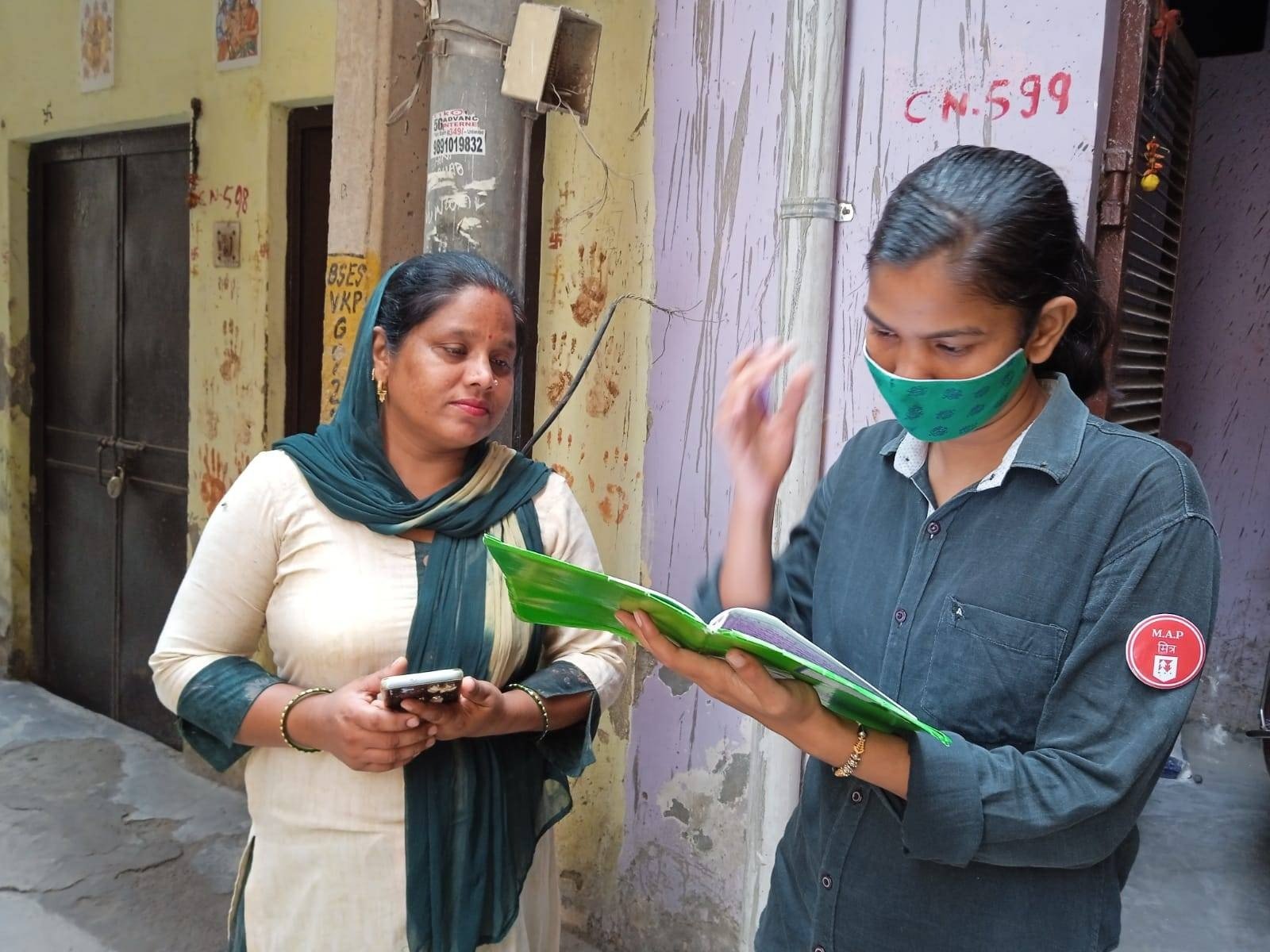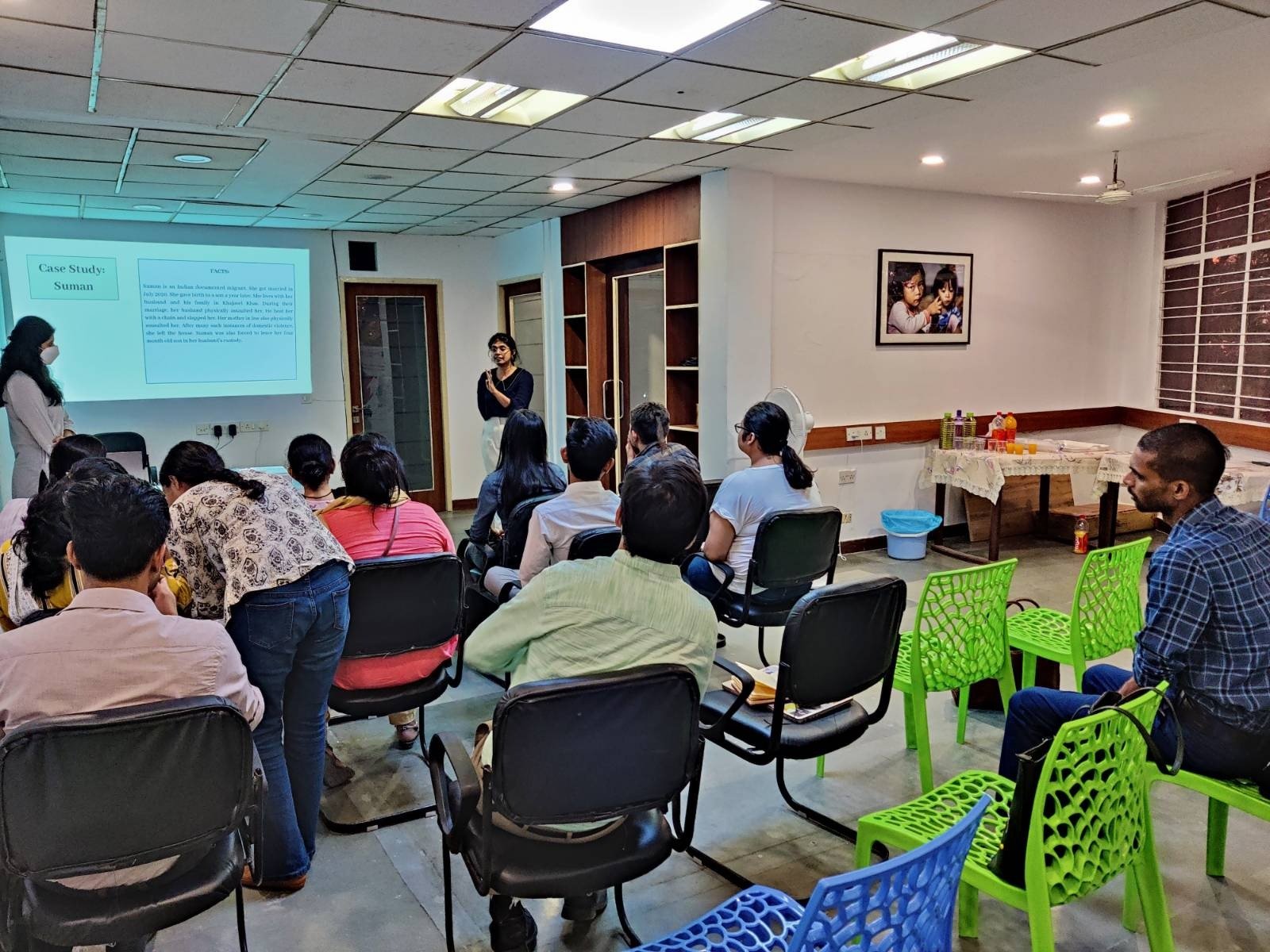By Nandini Shinde | 28 November, 2022
Paralegal Volunteers as Dynamic First Line Responders

Para-Legal Volunteers (PLVs) are grassroots volunteers empanelled by the National Legal Services Authority (NALSA) under the Scheme for PLVs (2009) to provide free para legal services to the weaker sections of society. PLVs may be law students, lawyers, social workers, retired civil servants, senior citizens, or other public spirited persons.
They are trained by NALSA on laws applicable at the grassroot level, on the specificities involved in judicial systems, and on the functioning of various stakeholders like the police, officials from Social Welfare Department, Woman and Child Welfare Department, etc. They are also trained to impart awareness on laws and the legal system, and to counsel parties and conduct informal mediations in simple disputes. The aim of this scheme is to bridge the gaps present between individuals and their access to legal institutions. PLVs either work for the Legal Services Authority in their district, or assist civil society organisations such as MAP.
MAP identified PLVs in select communities interested in working with us, and also facilitated the empanelment of community spirited individuals keen to work in social welfare. We provided additional trainings on areas of legal protection relevant to MAP’s work, and on skills required to provide trauma informed care and deliver on ground support to beneficiaries.
Now, within the Talika Network, PLVs are the first line of responders in gender based violence (GBV) cases and labour rights issues in specific parts of New Delhi and the NCR. They play a crucial role as community based volunteers bringing legal and other services to the beneficiaries’ doorstep.

PLVs provide individualised case assistance, participate in community engagement, and man legal desks along with the MAP team. PLVs have:
Helped GBV survivors address violence and report cases;
Enabled access to medical and psychosocial aid;
Accompanied them to police stations, drafted police complaints and registered FIRs; and
Assisted lawyers in court cases.
PLVs have also tackled GBV at its roots by engaging in door to door campaigns, where they visited women and sparked discussions on gender stereotyping and equality. They have been instrumental in encouraging GBV survivors to present their cases at the legal desks, and at the very least understand the redressal avenues and support services available to them if they wish to take action.
In one case, Sonam, one of the PLVs working with MAP, helped our Client, Nabila (name changed), a survivor of domestic violence, gain the custody of her six month old baby from her husband and in-laws. In another instance, PLV Shabnam first counselled a survivor of rape and accompanied the survivor to the police station to file a complaint against the perpetrator, whom she was living in fear of.
PLVs have been champions of women’s rights, catalysing change at the grassroots, and are key community level stakeholders in strengthening access to justice for migrant and displaced communities in New Delhi!

